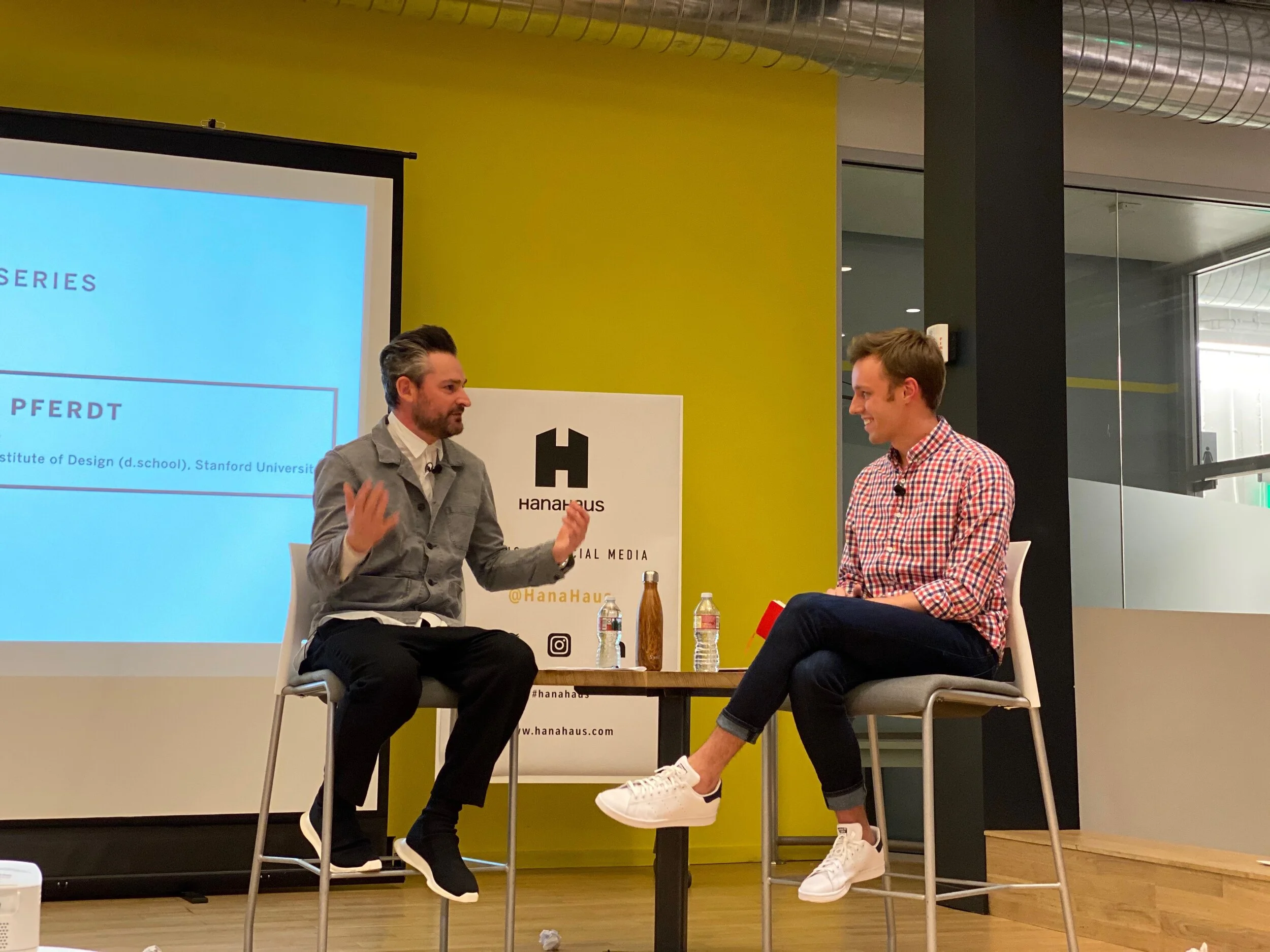On January 22nd, we had the pleasure of welcoming Dr. Frederik G. Pferdt, Google's Chief Innovation Evangelist and Adjunct Professor at Stanford’s d-school, to kick off the SAP Speaker Series in 2020! The room was packed to capacity as Frederik spoke about how organizations can create an inclusive environment that values empathy and encourages risk-taking to meet the grand challenges of tomorrow.
By Collin Gill-Sommerhauser from SAP Bay Area
__________
Frederik began the conversation by exploring what it means to be the Chief Innovation Evangelist at Google. His entire role revolves around this idea of “systematizing an innovative mindset”, and instilling confidence in Google’s employees to pursue radically new ideas. He not only wants to do this at Google, but actually across the whole world. He believes everyone is creative and has the ability to innovate, and it’s his job to evoke this feeling and inspire the people he works with.
Frederik went on to explain some principles he believes are crucial to cultivating an innovative work environment and demonstrated them through a few interactive audience exercises. In his first exercise, he asked the audience to close their eyes and listen to him read off a few simple math problems that went like this: “2+2 = 4, 4+4 = 8, 5+3 = 10, and 4-3 = 1.” Then as everyone opened their eyes, he asked them to call out what had just happened.
Obviously, everyone in the audience called attention to the mistake in the list; 5+3 does not equal 10. However, Frederik claimed that human nature is responsible for why we think like this and why the audience didn’t mention that there were three correct equations along with the mistake. It’s a result of an evolutionary trait called negativity bias; and it is essentially the reason why we as humans always find something wrong with a situation. So, whenever someone shares a new idea, a new product, a new feature, we automatically think about all the possible flaws, potential mistakes, and what could go wrong. Frederik argues that this mindset does not drive innovation forward, and in fact, only an optimistic mindset pushes us into the future.
The next exercise Frederik did with the audience involved looking into the future. He asked everyone to imagine what they think the future will look like and he challenged them to draw a picture of where they see themselves in 10 years. Then he asked the members of the audience to look at the future vision they just drew, crumple it up, and just throw it away. By the end of this exercise, there were more than 120 paper balls scattered across the floor of HanaHaus. The goal of this exercise was to train people to let go of their first future visions and adopt what’s called an experimentation mindset. This exercise was so powerful because it demonstrated how people tend to fall in love with their first ideas, and never gain the confidence to explore the idea in a new way. When you employ an experimentation mindset, you are more creative and effective in your approach to whatever situation you are in.
The last topic Frederik explored was this notion of creating physical environments to transform your mindset. He discussed the idea of how you feel when you walk into a church vs. when you walk into the gym. Two vastly different mindsets created by the physical environment surrounding you. Now, he wanted to understand how this could translate to actual work spaces. What kind of workspace sparks creativity, collaboration, experimentation, and optimism all at once? “The Garage” became his very first physical workspace experiment, where he essentially recreated a startup office based in a garage to remove the boundaries between having an idea and building your first prototype. It allowed people to truly feel like they can try something new without the fear of failure, and this instilled a new sense of creativity and enthusiasm unlike any he had ever seen before.
Overall, the audience learned how to transform organizational culture into one that continuously sparks new ideas and gives people the mindset to responsibly innovate and confidently explore our futures. Frederik’s desire for the evening was to bring our values to life and make them tangible through innovation & creativity: Mission Accomplished
—————————-
This was the first of many speakers we have planned this year at HanaHaus. On Wednesday, Feb. 19, we’re excited to host Turing Award recipient, David Patterson. He’s a distinguished engineer at Google and known by many as a computer pioneer. Don’t miss out on this opportunity to enjoy an evening in downtown Palo Alto with your colleagues and the broader Silicon Valley community. Register here


